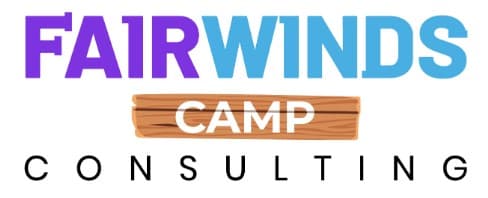April 28, 2025 5 minute read
Three Helpful Ideas to Increase Staff Learning
By Nick M. Teich, PhD, LCSW


How do we get staff to understand, retain, and keep learning through those long summer weeks? We all know it’s difficult for anyone to remember all the information we throw at them during staff orientation week(s), especially new staff. Here, I suggest some ways to help guide them with a little more substance:
- Use ongoing coaching throughout the summer. In order to keep staff learning and flexing the muscles they started building during pre-camp time, ongoing coaching is a great tool. Think of it as professional development throughout the job. In most workplaces, this is a given. But having been a camp director myself, and now working with many of them, I know that the biggest barrier to these coaching sessions is time. How can you overcome that?
Schedule the ongoing training sessions now. Maybe you have a weekly staff meeting. Can you make it twice weekly? Can you split up staff into smaller groups? Can you do it during times where there can be less supervision (e.g., a low-key large group activity for the kids)? Try to look at the camp schedule and find a time, preferably not late at night, when a member of your leadership team can sit down with the staff.
How can you make this learning time palatable? Literally, make it palatable with special snacks and some hang out time between leadership and front-line staff. If you have an hour total, plan for 30 minutes of training material and 30 minutes of enjoying food and each other.
What should the topics of training be? Well, it depends. It’s good to start off with a list of topics that, from your prior experience, you anticipate staff needing help with. What mostly comes up during week 1? Week 2? The mid-summer slump? Then, be ready to scrap those topics if there is a clear issue staff are struggling with around the time of your meeting. Take suggestions. Be sure to have the leader of the training prep for this; it may be old hat to them (how to get kids to listen better, how to curb homesickness), but it has to be presented in a new and innovative way in order to engage staff. Rotate the leadership members who provide these training sessions so that there are different voices throughout the summer. Sometimes it may even be appropriate to have a second or third-year counselor lead the session. They always listen to their peers!
Finally, make sure they leave with takeaways. This training and coaching time should be pointed and clear. Staff should leave the meeting with concrete ideas to implement when they come across the issue(s) you’ve highlighted. - Integrate role plays into staff training. If you’re into it, your staff will be, too. As the saying goes, practice makes perfect. If staff are able to practice common scenarios that arise at camp, they will be able to better execute on those skills in the moment. It will build their confidence and yours, knowing that you are all on the same page as to how to handle certain situations.
What are effective ways to role play? Use common scenarios that have happened at camp in the past, and are almost certain to reappear this year. An easy example for overnight camps: a camper is homesick and is struggling. How do you help that camper? What do you say or do? What should you not say or do? What tools do you use when the easy ones aren’t working? Break them into small groups of a handful of people each, each group mixed with returning and new staff, if possible. From the beginning of the session, let them role play, with one person playing the homesick camper (a returner who knows what this looks like!) and the others playing staff and other campers. They won’t have much direction yet, but let each group form their role play. Then, the whole staff watches each group and you lead a discussion about what went right, what needs work, and where they should completely readjust. Let veteran counselors chime in with success and failure stories. Then, let the groups try again, armed with much more information this time. Switch around role play parts throughout different scenarios so that each staff member gets to “be the staff member” in the scenario at least a few times. They’ll come out knowing 1) how to address a situation, 2) what likely doesn’t work, and 3) when the right time is to get that next level of help. - Speaking of getting help…Do your staff know when to try to solve problems themselves and when to get help? How can camps give clear directions to staff? I will often ask camp directors if they see three different kinds of staff at their camps: 1) the one who tries to take on too much themselves, and never asks for help (and at the end of the summer, the director hears about things they should have known about much earlier!); 2) the one who is so unsure of themselves that they ask for guidance and help with nearly everything they do, all the time; and 3) the one who knows how to split the difference and handle or at least try things themselves, and understands when it makes sense to get more help. “Yes,” the directors inevitably tell me, “we have all three types.” And as we know, we all want more of the #3s: those staff who have the confidence to use their skills, are flexible, and can make good decisions on the fly, but also who know when they need help and aren’t afraid to ask for it.
Teach your staff how to recognize which types of situations go in which category: A) take care of it yourself, you can do this! B) ask a returner or supervisor for guidance on what you should do, C) go to a leadership member and alert them of the situation and let them weigh in. Use real-life examples. Model them. Let them understand that asking for help is not a sign of failure; in fact, you welcome it. Let them also understand that if there are not imminent safety consequences, they should try to figure out how to best address the situation themselves in that moment. After all, they were hired because your camp has confidence in them. Encourage them to use the skills they already have. But…also make sure they know the kinds of things that they need to tell their supervisors.
Wishing you a wonderful, fun, meaningful, and safe summer!


Dr. Nick Teich is the owner of Fairwinds Camp Consulting. He has worked in the camp industry since 2000, and was an overnight camp founder and director in New Hampshire for 15 years before stepping into full-time consulting and executive coaching for camp directors. He works with many camps in the Northeast on all aspects of operations, and provides staff training in June each year. Nick is also on the Board of Directors for ACA New England. He can be reached at nick@fairwindsconsult.com or 207.200.5228. He lives in the Boston area with his wife and two children.
Photo courtesy of Camp Micah.

